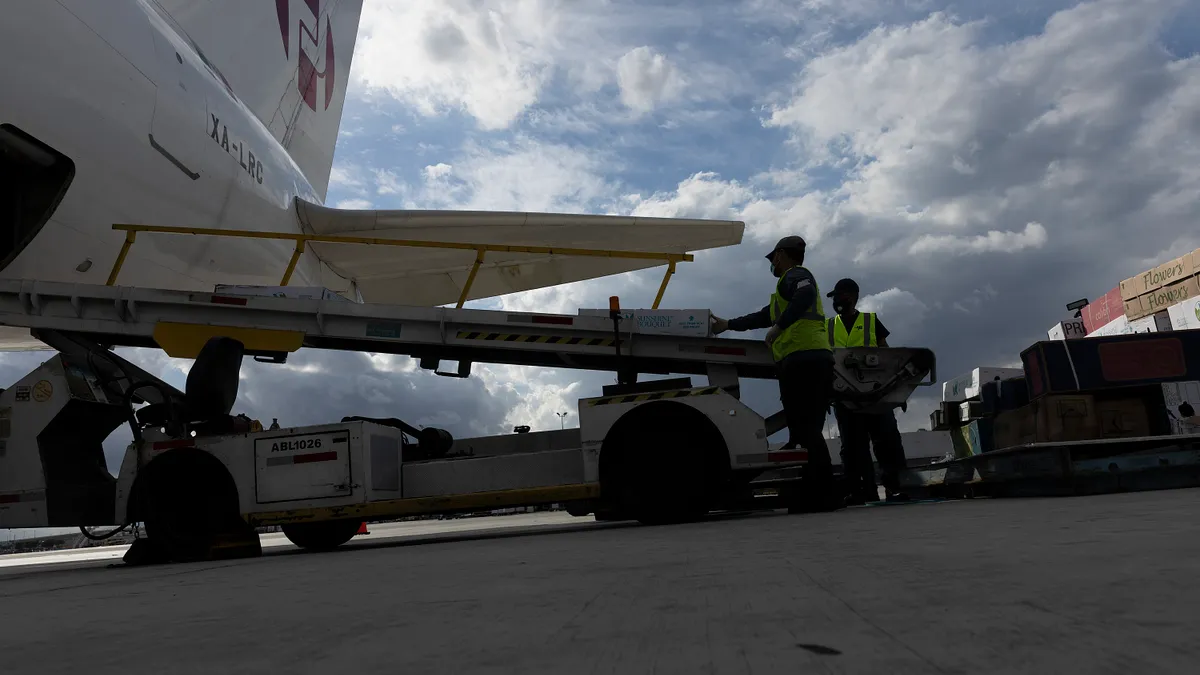U.S. Customs and Border Protection outlined its plan to restrict de minimis treatment for low-cost imports subject to certain tariffs in proposed rule changes Tuesday.
If implemented, the changes would eliminate the ability for goods valued below $800 covered by Section 201, 232 and 301 tariffs to avoid import duties, a move that was a priority during the Biden-Harris administration.
Additionally, shipments claiming the exemption will be required to provide tariff classification numbers under both the basic and enhanced entry process CBP outlined last week. This will allow CBP to determine whether the merchandise is eligible for de minimis treatment or not, according to the proposal.
The actions aim to strengthen national security, protect domestic industries and address "discriminatory or unreasonable practices that restrict or burden U.S. commerce," according to the proposal. It highlighted the domestic textile industry and manufacturing industry as particularly vulnerable to imports from China that claim the exemption.
“We cannot let Chinese-founded e-commerce platforms gain an unfair trade advantage while American businesses play by the rules,” said National Economic Advisor Lael Brainard in a news release last week.
The changes would apply to numerous imports that lean on the de minimis exemption to avoid duties for low-cost shipping into the U.S. CBP estimates 77% of shipments claiming the exemption in fiscal year 2023 would have been assessed for additional duties under Section 201, 232 or 301 tariffs if they had not received de minimis treatment.
For imported goods subject to regular duty rates, the standard rate is less than 2%, according to the proposal. But applying tariffs results in much higher rates — for example, the Section 301 rate assessed on certain goods from China ranges from 7.5% to 100%.
CBP's proposal said its "main estimates" find that consumers will bear the full price of increased tariffs stemming from the rule change.
"The primary costs of the proposed rule are consumer surplus losses resulting from increased duties and possibly increased processing fees, resulting in higher prices for imported goods paid by U.S. consumers on imported goods," the proposal said.
Eliminating the exemption for goods subject to Section 201, 232 and 301 tariffs would likely incentivize importers to consolidate orders into bulk shipments, as they would no longer be concerned about exceeding the $800 de minimis threshold, per the proposal. This shift in behavior would benefit CBP, the agency said, as multiple identical items could be reviewed by officers simultaneously.
Members of the public can submit a comment on the proposal until March 24. The announcement is the second of two rule change proposals tied to the Biden-Harris administration's September plan to limit abuse of the de minimis exemption. The first proposal, published last week, is focused on strengthening data collection requirements for low-cost imports entering the U.S.















